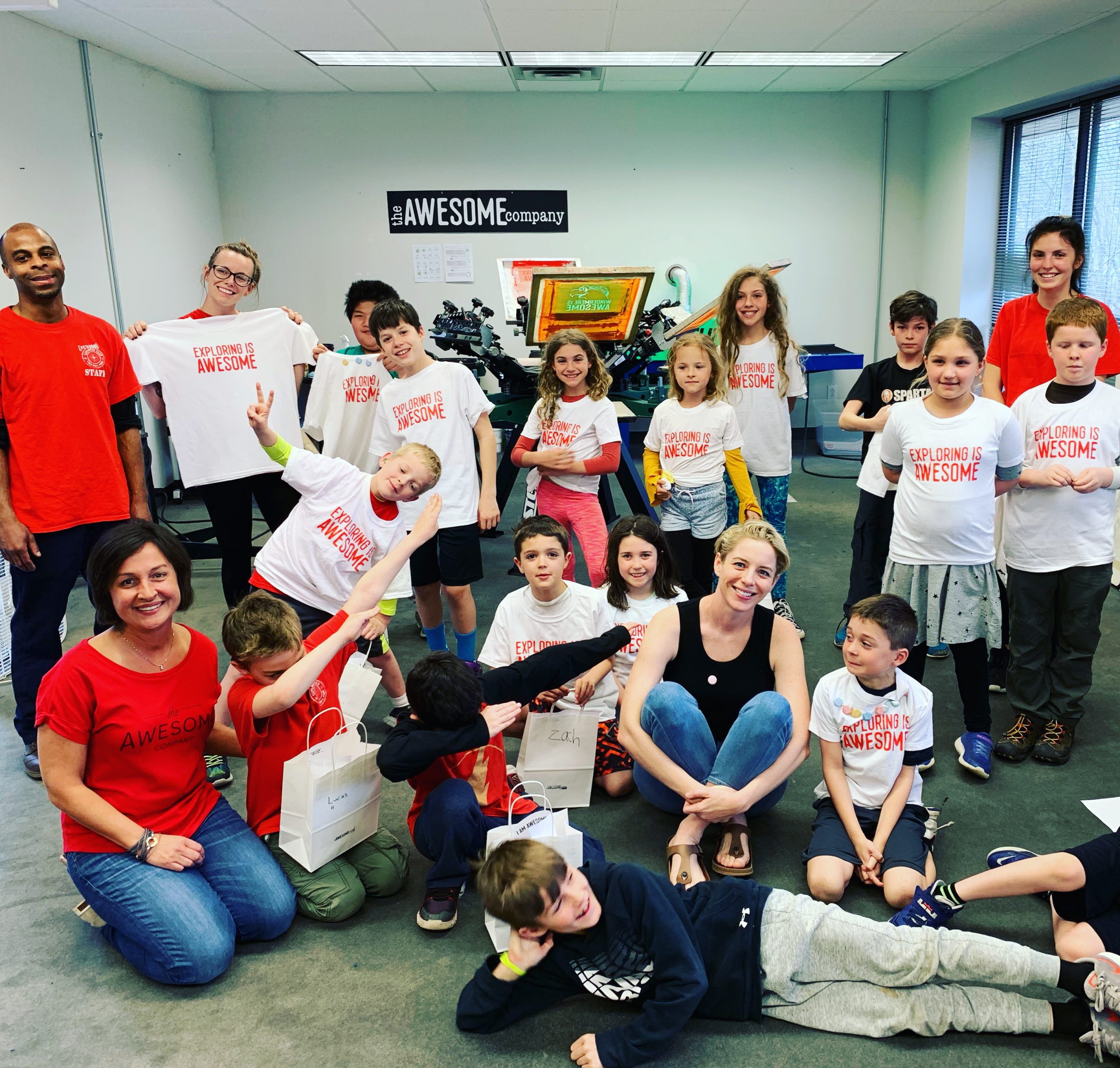Benefits of Neurodiversity in Apparel Decoration
The month of April is dedicated to autism awareness, and Jeanene Edwards dives into neurodiversity within the decorated apparel industry.
“Neurodiversity is the melting of minds, the respecting of people who are wired differently, people who bring things to the table differently,” Jacquie Mahan, founder of The Awesome Company, says. “Neurodiversity creates true innovation.”
Jeanene Edwards of Fruit of the Loom/JERZEES spoke with Jacquie Mahan of The Awesome Company and Patrick Bardsley of Spectrum Designs to learn about their mission of providing individuals with autism and intellectual disabilities the opportunity for stable employment.
‘Neurodiversity’ is a common term used to describe the unique minds of individuals with disabilities. The concept says neurological differences are to be recognized and respected as any other human variation, especially in the workplace.

Patrick Bardsley, CEO and co-Founder of Spectrum Designs Foundation, wants people to know that hiring neuro-diverse individuals isn’t about hiring them because we feel sorry for them. In the documentary film, The Business of Autism, Spectrum Designs shows how valuable these individuals are as employees.
“It’s about shifting prerequisites for hiring,” Bardsley says. “Normally, you think about hiring an outgoing, social person, but not every role and every position require that. It’s about seeing it through a different lens and recognizing the value of having different kinds of minds in the workplace.”
Organizations and businesses that hire individuals with disabilities can face different challenges than others. Similar to other decorated apparel shops, quality prints, turnaround time, shop processes and organization can be troublesome. However, they also face unique challenges such as:
Accommodation: Neuro-diverse individuals can have sensory integration issues that become distracting. Light sensitivity and excessive noise are examples of sensory elements that can make it difficult to focus.
“We’ve made adjustments like placing LED lights throughout rather than halogen bulbs that can flicker,” Bardsley says. “Our exhaust fans were installed on the roof, so you can’t hear the motor, and our compressor is quiet. We wanted the environment to be real-which it is-we’re a real print shop, but there’s no reason why we couldn’t make changes to the environment to make it a more welcoming, successful, and safe for the population that we employ.”
Language: Mahan says that working with individuals with autism requires adjusting communication styles to be more precise and direct, using verbal and non-verbal cues to draw attention to specific projects.
Social responsibility and business: “So we’re a nonprofit and a lot of times people don’t necessarily consider us a viable option because they’ve made assumptions about our pricing or productivity,” Bardsley adds. “Sometimes they say, ‘I want to help you guys out, but I really need this stuff done by this week, and you probably can’t do it.’ We’ve had to work extra hard to show people that we’re a viable option and a viable solution.”

Everyone has a unique learning style, language proficiency, and perspective, but individuals with disabilities are often misunderstood as a burden to a workplace, when in fact, they are quite valuable. Mahan and Bardsley highlighted a few significant benefits of hiring individuals with autism:
Dependable and punctual: You can count on neuro-diverse people to produce consistent and quality results across the board.
“There are false stereotypes about people with autism or intellectual disabilities,” Mahan says. “Our employees are the most dedicated and punctual. They arrive 10 minutes early with their eyes on the prize, which is great because they can meet deadlines for orders to help our business stay on track.”
Skillset: “Decorated apparel business is a great business for those with autism,” Mahan adds. “Our employees are great with screen preps, folding packing boxes, delivery and using, and fixing and cleaning screen printing machines. They are very focused and pay close attention to detail, which is great for printing, quality checks, or data entry.”
Loyal: Mahan and Bardsley both have incredibly loyal employees and very low job turnover within neurotypical communities. As Mahan says, “If you put in the time and money into getting to know your employees, you have an employee for life.”
Versatility: Spectrum Designs also provides opportunities for individuals to work at Spectrum Bakes, a service that crafts personalized treats, or Spectrum Suds, a laundry service. “We try to be what they call ‘people first,’ so we give employees agency to choose. So, if someone prefers baking or working with the laundry, we try and give them shifts and classes that really work for them,” Bardsley says.
Mahan agrees, “It’s all about putting them where they feel most successful. Everyone has different goals and definitions of success.”
The Awesome Company and Spectrum Designs show us that rethinking what a good employee looks like can genuinely benefit a shop. Additionally, these shops showcase how important it is to provide employment opportunities to individuals with autism and intellectual disabilities.